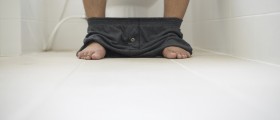
Enuresis is the medical term for not being capable of holding urine. Thus, this condition results in involuntary urination. There are two types of this condition, one is called diurnal enuresis and stands for involuntary urination during the day, while the other is named nocturnal enuresis and is connected with one's inability to control urination during the night.
Types of Nocturnal Enuresis
Nocturnal enuresis can be classified into two types. The first one is called primary enuresis and manifests through a condition which has been present since early childhood. The other type of nocturnal enuresis is called secondary and develops at least 6 months after the child has learned to hold urine, even though it may appear years later.
Reasons behind Nocturnal Enuresis
Basically, this condition takes place once the bladder nerves do not send the message to the brain, telling us that we have to go to the bathroom. Therefore, this information remains unsent and the rest of the body is not aware of the change in the bladder. This results in involuntary urination.
This disorder may stem from various causes, even though it is still considered to be a medical mystery. Nevertheless, a hormone called antidiuretic hormone or ADH, is in charge of holding our water during the night. So, hormonal imbalances which result in decreased amounts of ADH may lead to nocturnal enuresis.
Having a small or a dysfunctional bladder may be the factor responsible for inadequate urination of this type. Also, due to the fact that many nocturnal enuresis patients have had parents suffering from the same condition, the problem may also be genetic in nature.
Alternatively, a state of profound sleep may interfere with one's waking up and acknowledging that he/she has to go to the bathroom. Thus, sleeping may be the problem.
However, not all causes are so benign. Namely, numerous illnesses are known to be behind nocturnal enuresis too. Diabetes, constipation and urinary tract infections are all known to be possible triggers of this unpleasant medical phenomenon. Additionally, spinal cord injuries can also lead to involuntary urination.
Ultimately, several mental problems can lead to nocturnal enuresis. Psychological traumas, stress or other forms of tension and frustration all can overwhelm a person, leading to this lack of urination control.
All in all, once you notice the symptoms of this condition, seek medical assistance. Your doctor will check your general health and perform a routine examination. Also, you will be a asked series of questions about your previous health problems and general lifestyle. Then, he/she will give a diagnosis and initiate suitable treatment for nocturnal enuresis, dealing with the causes of this condition present in your case.

















Your thoughts on this
Loading...